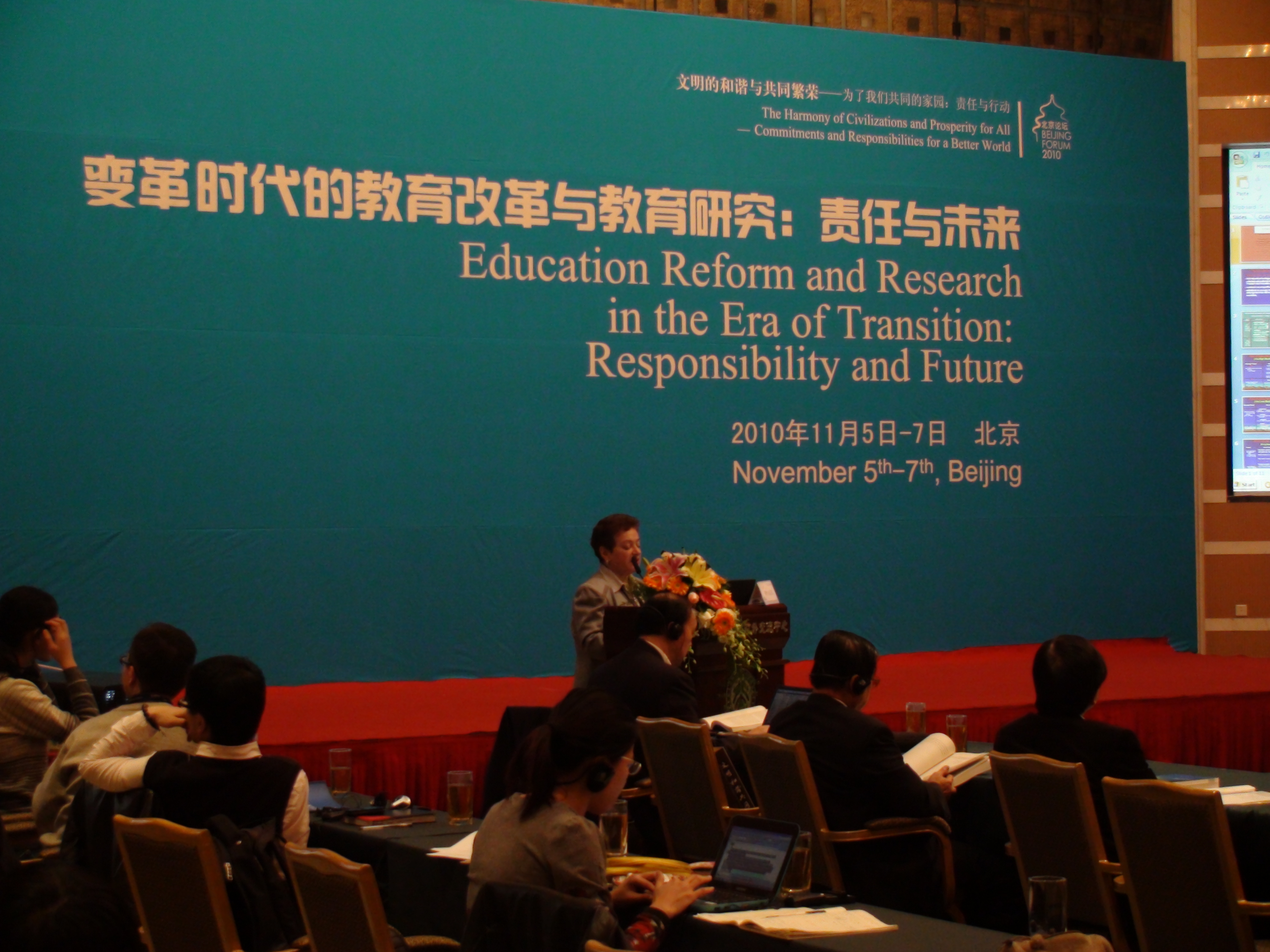Peking University, Nov. 6, 2010: "Globalization and Education", session 3 of the panel forum of Education Reform and Research in the Era of Transition: Responsibility and Future were held at Sunny Hall, Yingjie Exchange Center, Peking University (PKU), on November 6. Prof. Jeffery Lehman, the former President of Cornell University, president of the Institute for China-U.S. Law & Policy Studies, and chancellor and founding dean of the PKU School of Transnational Law (STL), served as the chair of this session.

The panel forum of Education Reform and Research in the Era of Transition: Responsibility and Future at Sunny Hall, Yingjie Exchange Center, Peking University (PKU). (By Su Dongrui)
During this session, five speakers from the US, Canada, and Russia presented their ideas about Globalization and Education in terms of their own fields and in both regional and global context.
The first speaker, Prof. Charles Russo from the University of Dayton, gave a speech of "Educational Rights of Children in the World City: Update, Reflections and Recommendations". He pointed out that education was a fundamental human right that should be protected. The roles of government policies, national leaders, and parents in the course education were emphasized in his speech.
Following Prof. Charles Russo, two professors from Canada presented their opinions on globalization and education. Prof. Karen Mundy from the University of Toronto talked about global governance in the field of education, especially the role of multilateralism in the achievement of "Education for All". Prof. Qiang Zha from York University elaborated on the widening gap between the number of Chinese students in Canada and other "competitor countries". He suggested that a central policy with respect to international education was needed to bring more Chinese students to Canada.
Prof. Michael T. Nettles from ETS brought up the issue of "Closing Educational and Social Mobility Gaps Worldwide". To him, the purpose of this session was to "identify where these educational and social mobility gaps still exist, why they persist", and work out what can be done to eliminate these gaps. And he suggested that "an equitable and effective educational system which facilitates social mobility and a leads to the overall prosperity of populations" was crucial in closing these gaps.
Finally, Prof. Nina Ye Borevskaya explored the similarities and differences between Chinese and Russian educational reforms in history, because according to her research, both China and Russia had "rich historical heritage and a vital culture-oriented educational tradition opposite to Western technocratic-oriented model" and they shared "common recent political back ground". Her interpretation of the Chinese word "hexie" as "unity through variety" during her speech was welcomed by many audiences.
During the Q&A section, the lectures further explained their main points in response to the questions from other scholars and audiences especially in the field of Canadian Chinese educational collaboration and the history of Russian and Chinese educational reforms.
Extended Reading:
Reporter by: Su Dongrui
Edited by: Su Juan